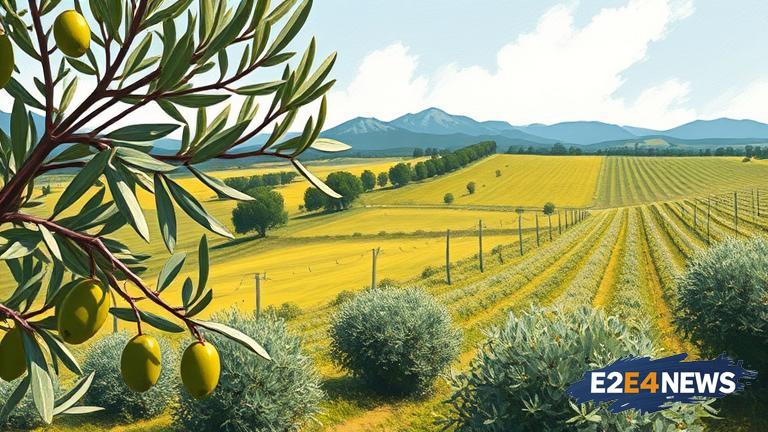The olive oil harvest in New Zealand has been underway, and the results are looking promising. Many producers in the country are reporting high-quality yields, with some even noting that the current harvest is one of the best in recent years. The favorable weather conditions, combined with the expertise of local farmers, have contributed to the success of the harvest. New Zealand’s olive oil industry has been growing steadily over the past few decades, with the country’s unique climate and soil conditions making it an ideal place for olive cultivation. The majority of New Zealand’s olive oil production comes from the North Island, particularly from the regions of Hawke’s Bay and Wairarapa. These regions offer a Mediterranean-like climate, with warm summers and mild winters, which is well-suited for olive trees. The country’s olive oil producers are known for their focus on quality and sustainability, with many using traditional methods and organic practices to cultivate and harvest their olives. The resulting olive oil is highly prized for its distinct flavor and aroma, which is often described as fruity and peppery. The demand for New Zealand olive oil is growing, both domestically and internationally, with many consumers seeking out high-quality and sustainable products. The country’s olive oil industry is also supported by a number of organizations and associations, which work to promote and develop the sector. One of the main challenges facing New Zealand’s olive oil producers is the competition from larger and more established producers, such as those in Europe and Australia. However, many producers are confident that the unique characteristics and quality of New Zealand olive oil will help to set it apart in the market. In addition to the high-quality olive oil, New Zealand is also known for its beautiful landscapes and tourism industry, which provides a boost to the local economy. The olive oil harvest in New Zealand typically takes place between March and July, with the exact timing depending on the specific region and weather conditions. During this time, many producers offer tours and tastings, allowing visitors to experience the harvest firsthand and learn more about the production process. The olive oil industry in New Zealand is not only important for the local economy, but also for the country’s cultural heritage. Many of the country’s olive oil producers are family-owned and operated, with a strong focus on tradition and community. The industry is also supported by a number of festivals and events, which celebrate the harvest and the country’s olive oil culture. Overall, the olive oil harvest in New Zealand is showing promise, with high-quality yields and a growing demand for local products. As the industry continues to grow and develop, it is likely that New Zealand will become an increasingly important player in the global olive oil market. With its unique climate and soil conditions, combined with the expertise and passion of local producers, New Zealand is well-positioned to produce some of the world’s best olive oil. The country’s focus on quality and sustainability will also help to set its olive oil apart in the market, appealing to consumers who are seeking out high-quality and environmentally friendly products. In the coming years, it is likely that we will see even more growth and development in New Zealand’s olive oil industry, as the country continues to establish itself as a major player in the global market.
